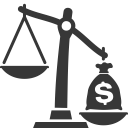
With the business environment’s continuous and improved use of technology to save time and money, you may be wondering whether you should use debt collection software for your commercial collections. While good debt collection software certainly has its place in the business environment, it’s not always the best solution for commercial collections. Here are some things to consider.
Getting Past the Gatekeeper
When you’re dealing with commercial collections, you’re calling on businesses to collect money that is owed to you. Yet, when you call, the person answering the phone may not be the person who has the authority to pay you. In most instances, they are the gatekeeper. Gatekeepers protect the time of other members of the business by weeding out sales calls. An automated commercial collections call sounds like a robot and behaves like one as well (“Push 1 to hear this important message about your account!”). Meaning that most gatekeepers will just hang up the phone on an automated call. You can’t blame them with the number of telephonic phishing incidents on the rise.
The Efficiency of Automated Collections Is Missing a Key Factor
There is a key factor in commercial collections success. That is the human factor. When you have an issue with a bill, what do you prefer: talking to an automated system that can’t answer your questions or a person with access to your file? Successful debt collection involves treating others how you want to be treated and being available to help them solve whatever problem it is that’s stopping them from paying you.
It Can’t Protect Your Business Relationships
Successful businesses are built on good relationships. Good relationships aren’t just reserved for the clients who pay on time. The relationships with your past due clients are equally important. Complaints made against your company are far more convincing than all of the references you get from great clients. By hiring an experienced collections lawyer who understands this, you’re able to protect your business relationships and the reputation of your company.
For more information, contact attorney Ronald P. Slates today.
4. Commercial Collections 101: Tips to Get in Contact with the Debtor
In commercial collections you general deal with three main types of debtors. There’s the type that forgot, lost, or never received their invoice. In many cases, they actually do want to pay you. Then there are the debtors that are legitimately struggling to pay what they owe. They usually want to pay you, but they don’t have a way to do it. Then, there’s the debtor that’s dodging you. With the first and second type of debtors, you have options to get paid. Those options all revolve around problem solving. With the third type of debtor, you could be struggling just to get into contact with them. Here are some tips you can use to ensure that you receive the money you are owed.
Call at Different Times Each Day
If you’re trying to reach the debtor at the same time each day and they’re not answering or returning your messages, change the time that you’re calling. Just make sure that you’re not calling at inappropriate times that would put you in violation of collection laws. If you call more than once a day, remember to always remain professional in the messages you leave.
Try Going Through the Receptionist or Assistant
If you’re calling the direct line for the debtor and they’re not answering or returning your calls, go through the receptionist or the assistant. Call the main line and ask to speak with them. Let the receptionist or assistant know that it isn’t a sales call, but it is a call about an existing account. You don’t have to tell them it is a collections call. The debtor may answer a call that is transferred from the main line.
Mail a Certified Letter and Send an Email
Again, remember to always be professional in contact with the debtor. Mail out a certified letter explaining your attempts to contact the debtor about their past due account and what will happen if they do not get into contact with you. You can also send an email. Remember to use a “read receipt” on your email. You’ll be notified that the recipient received the email.
Use a Commercial Collections Attorney
If the debtor still refuses to talk with you, retain experienced commercial collections attorney Ronald P. Slates to help resolve the matter.

